SOUTH PARIS – Fourteen people lay still on the black wooden floor.
Only the midmorning sun filtering through the screen door lights the mostly dark Celebration Barn Theater. And, other than the rhythmic sound of bodies breathing and the peaceful chirping of birds outside, the theater is silent.
The men and women are in meditation, most prone on their backs, legs outstretched, arms at their sides. They follow the hushed prompts of instructor Karen Montanaro, who slowly brings them to life.
“Play with the idea that your movements are like lullabies,” Montanaro says in a voice so quiet it’s barely audible. “They’re soothing, they’re just floating – very real sensations, but still floating.”
The bodies begin moving. One raises an arm. Another lifts a leg. In moments, they’re on their feet, moving to their own internal rhythms.
“Whatever you’re doing, do it more,” Montanaro says. “Stay safe, but go deeper.”
Since 1972, the Celebration Barn has pushed performers to their personal limits, helping them find an inner peace that allows them to express themselves on stage with confidence and without fear.
The late Tony Montanaro founded the place to train mimes, using lessons and techniques that he learned from his studies with Marcel Marceau. Montanaro’s vision expanded over time, and the years since his death in 2002 have seen the barn evolve even more. Today, Montanaro’s widow and his disciples lead with Montanaro’s energy and zeal, but with a wider vision. It’s not just mime that is spoken here, but all manner of physical theater.
The barn remains, at its core, what it was in the beginning: A place where artists learn to express their voice through their physicality and create a connection with the audience that is tangible and honest.
Dancers, jugglers, storytellers, circus artists, comedians and performers of all ilks from across Maine and New England, throughout the United States and many corners of the globe point to the Celebration Barn as a place where they dared to try something new on stage. This summer, students from 11 countries are enrolled in workshops, said executive director Amanda Huotari.
They come to this restored horse barn in Oxford County, where the tall trees grow to the edge of the clearing and engulf the barn like a cocoon, to focus on their craft, develop work and learn through collaboration and experimentation.
The barn itself has barely changed. It’s a classically elegant red building with white trim and a handsome cupola. Some of the systems have been updated to improve efficiency, and the seating is slightly more comfortable. But the barn itself remains the same simple wooden structure that it was 40 years ago, with the same water stains on the walls and the same creaks in the floor.
“It is a perfect canvas,” said Huotari, who came to the barn in 1991 to study with Tony Montanaro and never left. “It is a vessel waiting to be filled by the artists who come in and decide what to put into it.”
The barn gives back, she said. It encourages the artistic process because of its lack of pretense. There is nothing fancy about it, and there has never been an effort to change the place.
It is a small theater by design. Most theaters focus on the presentation of work, and much attention is paid to the audience experience.
The audience matters here, too – deeply. The barn derives a portion of its meager $140,000 annual budget from tickets sold for weekend performances throughout the summer, which mostly attract area residents, summer folk and a few people from Portland and beyond. There are five rows of seats – actually, four rows of seats and one long bench. Stage lights hang from the ceiling, unadorned and unhidden. Black curtains block the sides of the stage. There is no proscenium, no sense of theatricality to the space itself.
That lack of pretense serves the audience and performers well, because it encourages a personal connection, said Fritz Grobe, who has attended classes at the barn for decades and now serves as vice president of the barn’s board. Grobe is best known for his work with Eepybird, the Buckfield-based mad scientists who created the Diet Coke and Mentos experiments that led to TV appearances and a career that takes them around the globe.
He saw his first Celebration Barn show when he was 8 and a decade later realized stage work was what he wanted to do. He took classes at the barn, learned to juggle and made his career first in the circus and later with Eepybird.
“Without the barn, I would not have the career I have today,” Grobe said.
When Peter Nielsen sought a location for the Circus Conservatory of America, Portland emerged as an obvious choice because of the legacy of the barn. There’s a history of performance in Maine linked directly to Montanaro known within circles that extend far beyond the state, Nielsen said. The Celebration Barn is part of a larger, regional tradition that includes Cirque du Soleil in Montreal, Circus Smirkus in Vermont, Pilobolus in New Hampshire and others.
With its “absolute artistic integrity” intact, the barn was a natural ally in the circus conservatory’s effort to establish itself in Maine, he said.
José Pérez IV came to the barn this summer as an intern and is taking as many classes as he can. He lives in New York and grew up in Michigan.
Among his summer duties is collecting eggs from the chickens, but his specialty is stage fighting. An instructor told him about the barn and urged him to find a way to get to Maine to learn to fight better and faster. That means trusting his body and learning how to use it efficiently while remaining in control.
“Being in this type of environment is incredibly valuable, especially as an artist coming from a bigger bustling city,” said Pérez, 24. “The amount of focus an artist can have here is unparalleled. There are so few external distractions to worry about. There are no subways, no noise. There is just so much space.”
He compared his initial experience at the barn to a baby seeing the world for the first time.
For the past two weeks, he attended a workshop called “Devising Intensive,” taught by Karen Montanaro and Davis Robinson.
Montanaro is known for combining dance and mime. Robinson teaches theater at Bowdoin College, and is the founder and artistic director of Boston-based Beau Jest Moving Theater.
Robinson said the barn remains one of the few places in the United States where students can learn physical comedy. The other, Dell’Arte International, is in California.
“There are some new places popping up, but realistically, if you want to study clowning, physical theater and improvisation and things related, those are the main places to look,” he said.
Why Maine? Why this modest barn in a small town in a rural part of a state that’s hard to get to and, for some, harder to leave?
Part of it has to do with the quiet.
It’s so quiet here at night, Rene Johnson swears she can hear people dream. Students sleep communally in the barn’s lofts.
“I’ve spent a lot of quiet hours in that space,” said Johnson, who is in her second summer at the barn. “I can feel things oozing off the walls. I don’t know what they are. But the second you step on the grounds, the energy that exudes from this place is intense, overwhelming, beautiful and scary.”
Johnson, 29, lives in Portland, She spent many years mustering the courage to express herself on stage. When she was little, people thought she was cute when she made up songs about herself and sang them to anyone willing to listen. As she got older, people told her to be quiet.
By the time she reached her early 20s, she said, she found herself apologizing for her behavior instead of embracing her individuality. She began withdrawing.
When she came to the barn last year, she developed a show called “g e e l,” which she performed this summer at PortFringe, Portland’s alternative theater festival. It is a one-woman show about trauma, told with song and dance. Her instructors and peers gave her the courage to talk about her life and create work that reflects her personality and expresses her innermost thoughts.
“I stopped being me because other people made me feel shame for being me,” Johnson said. “The barn helped me trust the person I am.”
Send questions/comments to the editors.


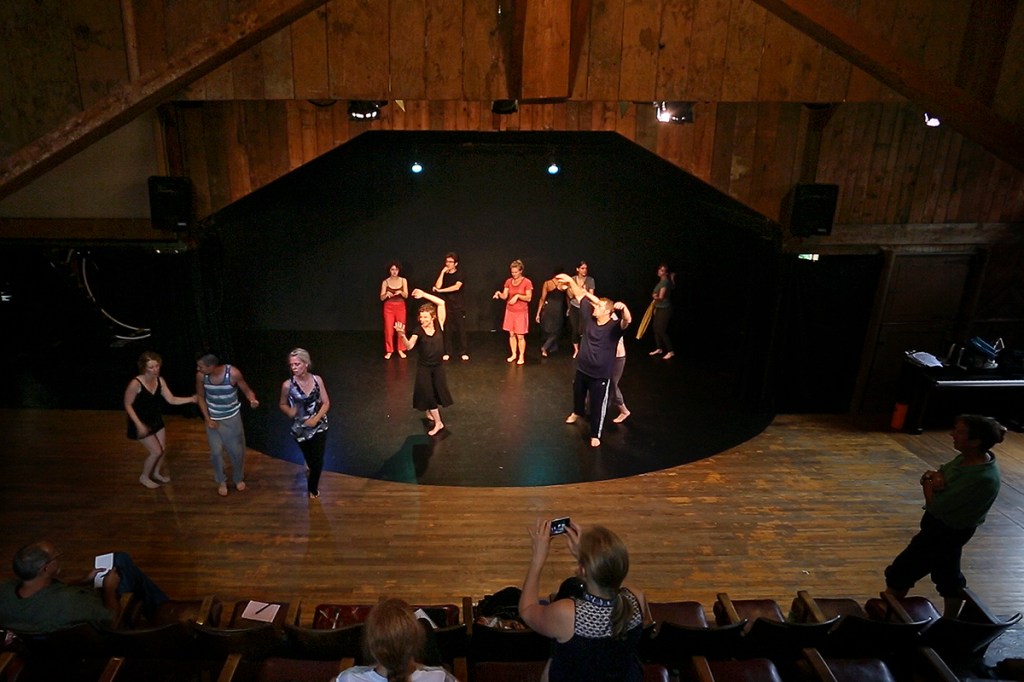
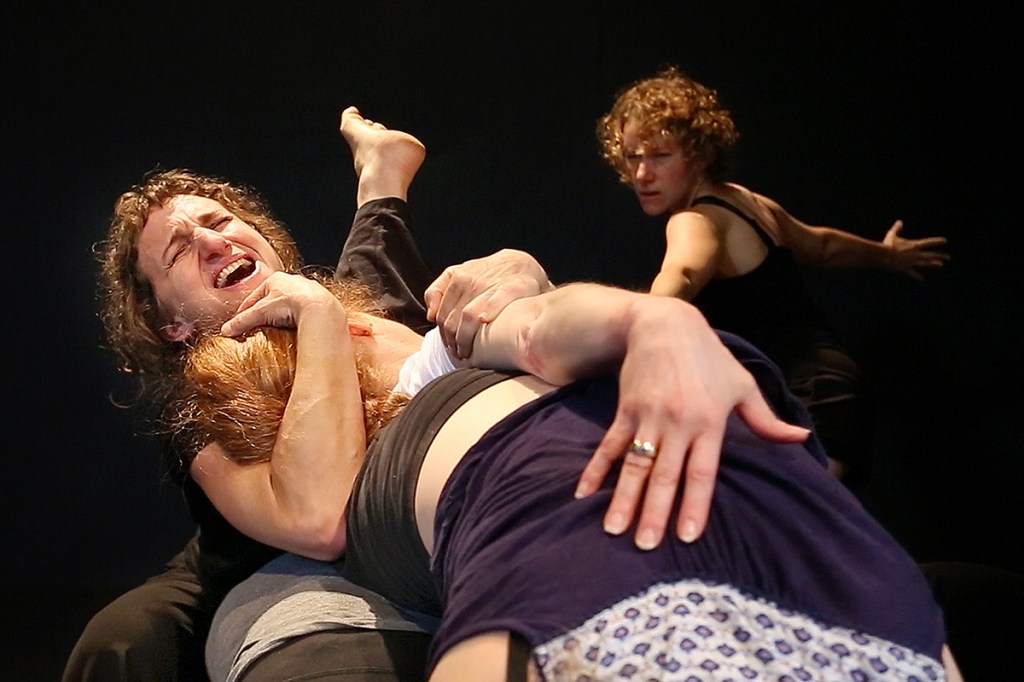
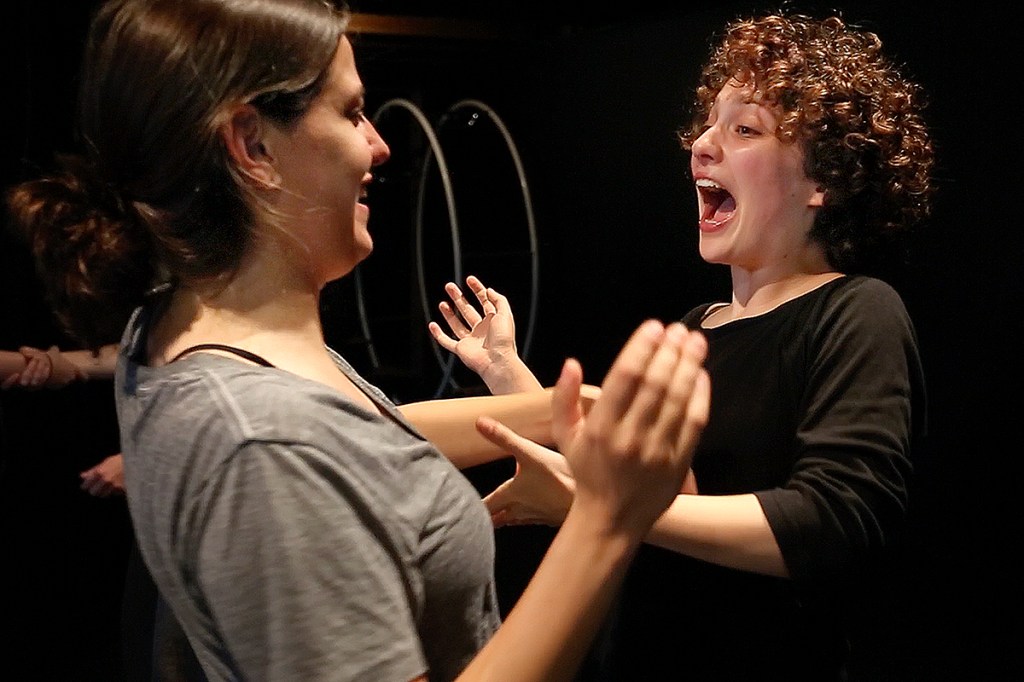
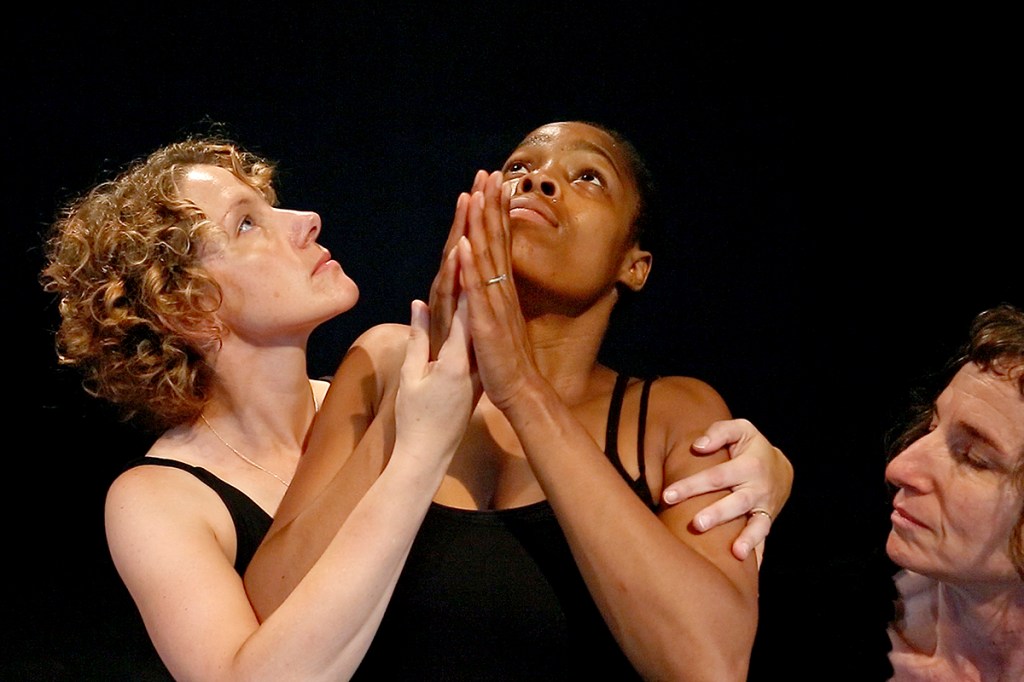
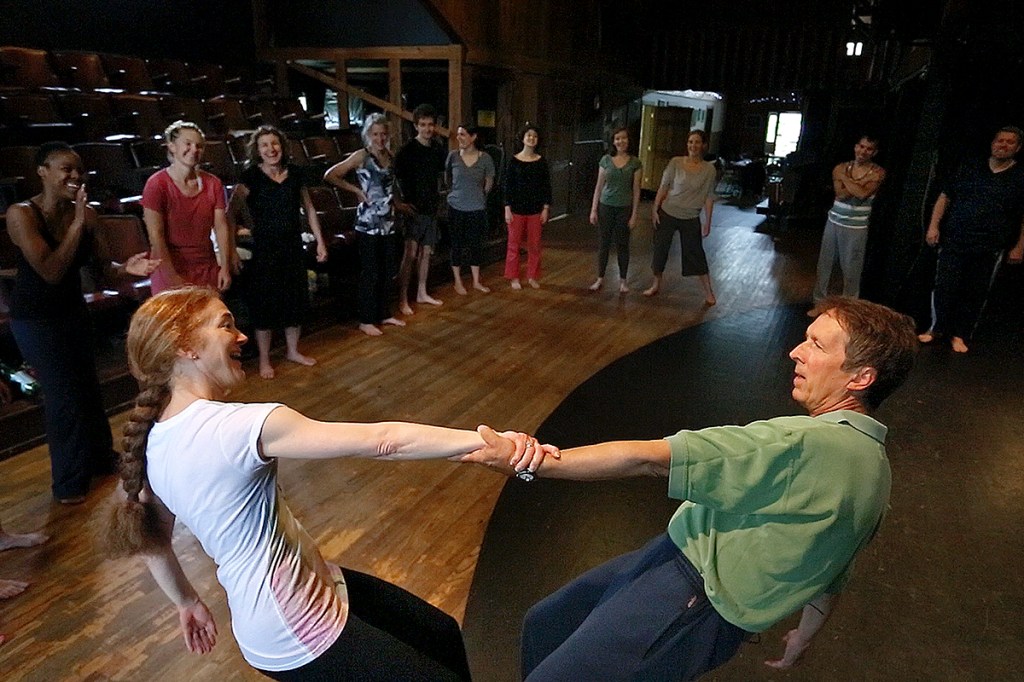

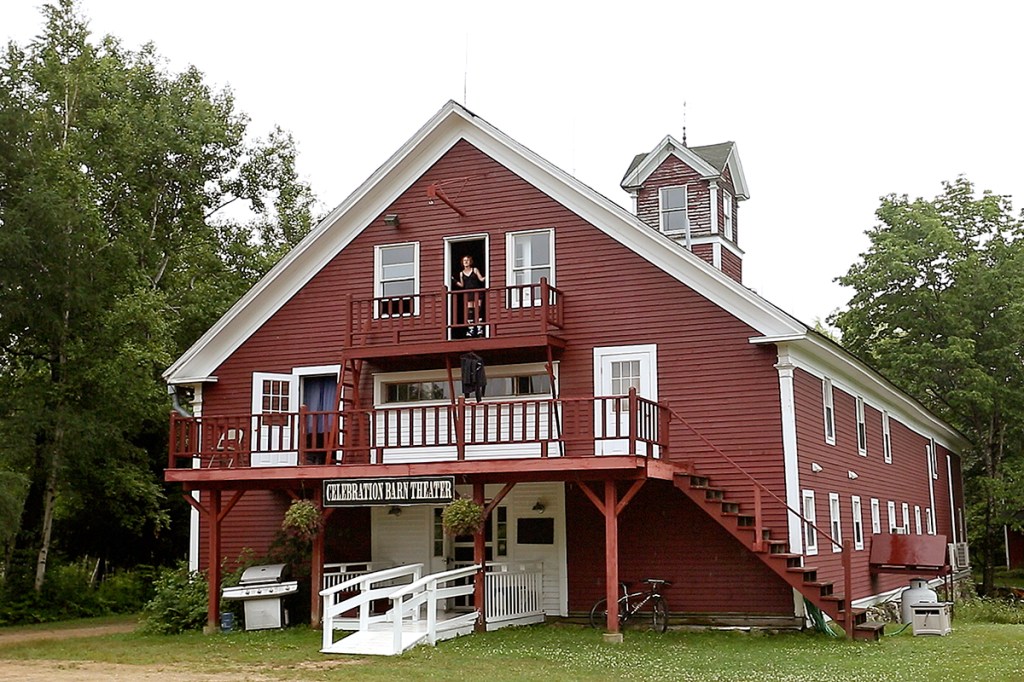


Success. Please wait for the page to reload. If the page does not reload within 5 seconds, please refresh the page.
Enter your email and password to access comments.
Hi, to comment on stories you must . This profile is in addition to your subscription and website login.
Already have a commenting profile? .
Invalid username/password.
Please check your email to confirm and complete your registration.
Only subscribers are eligible to post comments. Please subscribe or login first for digital access. Here’s why.
Use the form below to reset your password. When you've submitted your account email, we will send an email with a reset code.